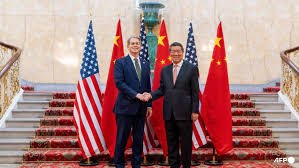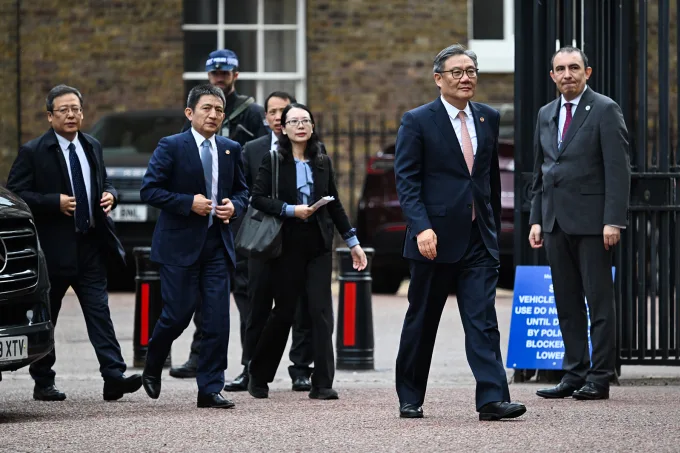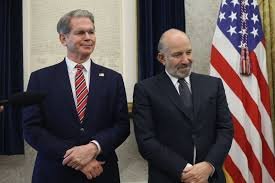US AND CHINA REACH FRAMEWORK AGREEMENT ON TRADE TRUCE

The United States and China have agreed on a framework to implement their trade truce, officials from both countries announced after concluding two days of talks in London. The agreement, reached “in principle,” outlines how to implement the consensus reached during the previous round of talks in Geneva and a phone call between the two countries’ leaders last week.

US Commerce Secretary Howard Lutnick said officials on both sides will now take the proposal back to their leaders for approval. “If that is approved, we will then implement the framework,” he added. While neither side disclosed specifics of the deal, Lutnick indicated that both countries had agreed to roll back export controls on goods and technologies crucial to the other.
China’s restrictions on exports of rare earth minerals and magnets to the US will be resolved as a “fundamental” part of the framework agreement, Lutnick said. “Also, there were a number of measures the United States of America put on when those rare earths were not coming… You should expect those to come off, sort of as President Trump said: ‘In a balanced way.'”

The talks, held at Lancaster House in central London, aimed to defuse tensions and ease export restrictions that threaten to disrupt global manufacturing. Rare earth minerals and their magnets are essential for various industries, including electronics, defense, and energy, and China holds a near-monopoly on these materials critical to American industries and defense.

Following their phone call last week, Trump said Xi had agreed to restart the flow of rare earth minerals and magnets, although he did not elaborate on the volume or timing. China’s exports of rare earths have plunged since April, when Beijing imposed new licensing rules on certain minerals in response to Trump’s tariffs.
Li Chenggang, China’s trade negotiator, said the progress made during the talks is conducive to building trust between China and the US, promoting the stable and healthy development of their economic and trade relations. “The progress made during this round of talks in London is conducive to further building trust between China and the United States, promoting the stable and healthy development of China-US economic and trade relations,” he said.
The US and China agreed in Geneva on May 12 to temporarily roll back crippling tariffs on each other and use a 90-day window to hash out a broader deal to address their trade imbalance. However, China’s exports to the US suffered a steep decline of 34.5% in May, and renewed friction necessitated another round of talks.
In a related development, Ren Zhengfei, the founder of Huawei, dismissed the impact of technology restrictions imposed by the US, saying that Huawei’s chip technology remains one generation behind US technology. “The US has exaggerated Huawei’s capabilities. We’re not that advanced yet,” he said, adding that China’s current needs could be met by bundling microchips together.






















































































































































































































































































































































































































































































































































































































































































































































































































































































































































































































































































































































































































































































































































































































































































































































































































































































































































































































































































